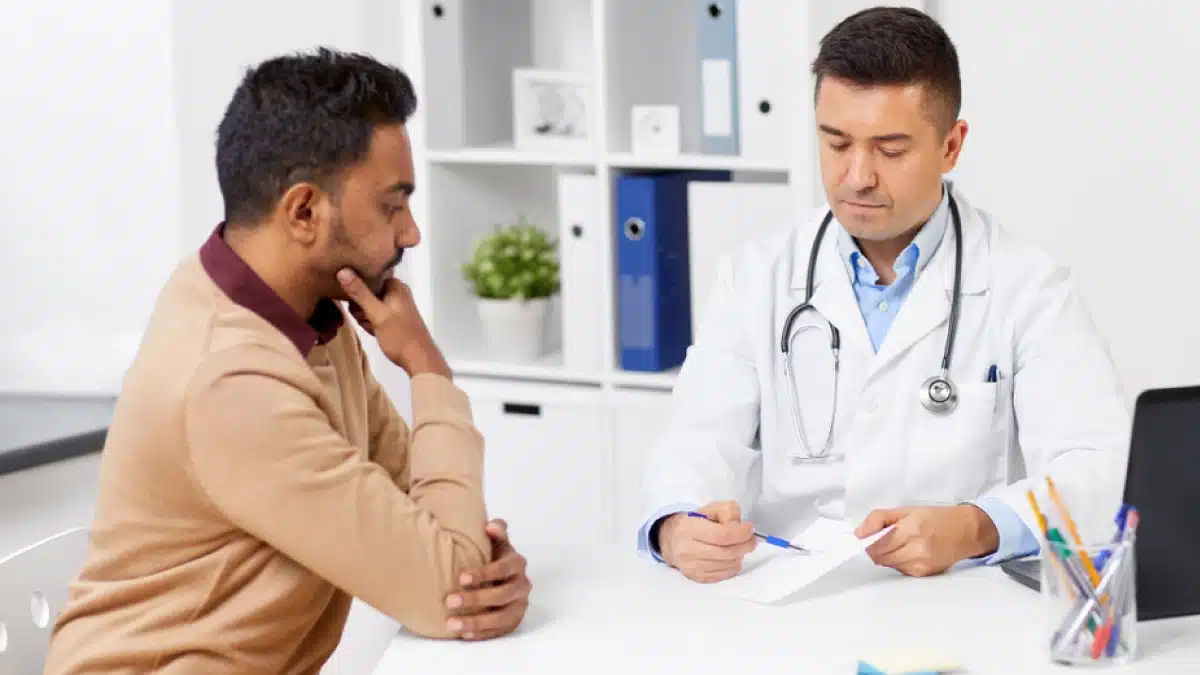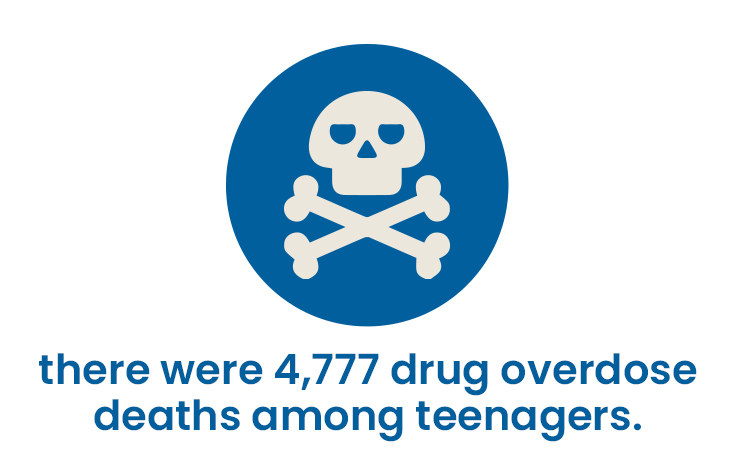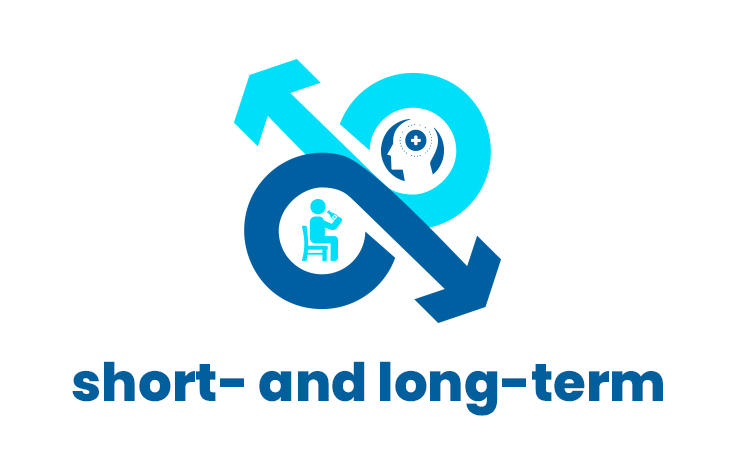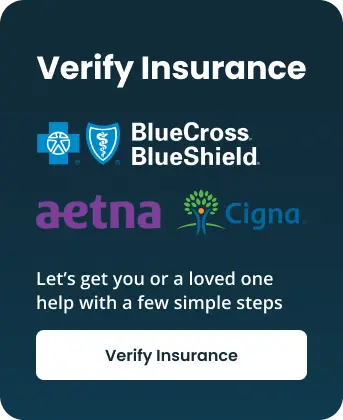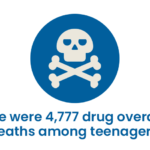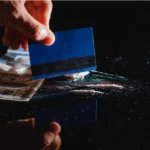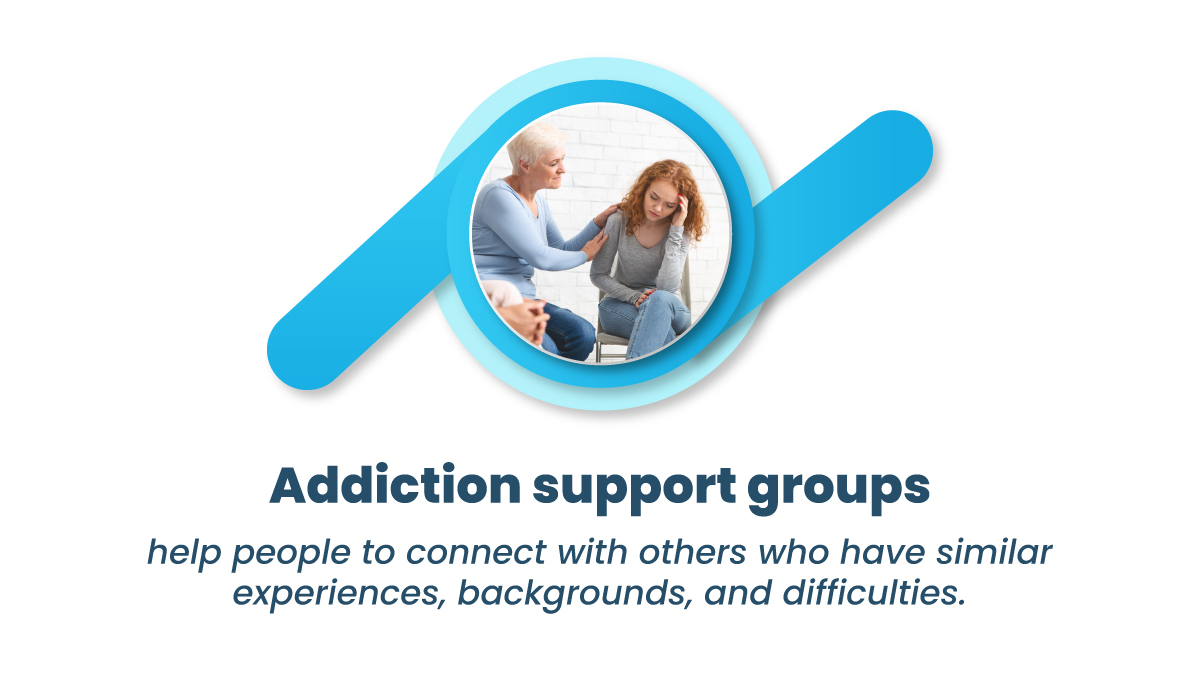
Drug addiction negatively affects the family and friends of people suffering from addiction. Loving someone suffering from addiction can be very challenging and painful.
Because drug addiction affects the whole family, treating the addicted person may not result in long-term changes within the family unit.
A person suffering from addiction may find that support groups are an invaluable resource. Addiction support groups help people to connect with others who have similar experiences, backgrounds, and difficulties.
These substance abuse disorder (SUD) or drug addiction support groups are highly beneficial for people looking for a support group as a first step in their recovery from drug addiction. These are also helpful for those who want to engage in a group to stay sober.
Key Takeaways
Many mental and behavioral health treatments, including addiction rehabilitation, rely on support groups.
- There are numerous sorts of drug addiction support groups accessible.
- Support groups are meant to supplement the results of treatment.
- Because of the similarities in the experiences of support group participants, members frequently feel understood and supported.
- People may share similar issues with friends, family members, or coworkers, as well as the same concerns about the future.
If you want help with drug addiction, consider The Haven Detox-South Florida. We have various effective treatment approaches to help you recover from addiction. Contact us at (561) 328–8627 and get treatment now.
How Support Groups Help Heal Drug Addiction
Many mental and behavioral health treatments, including addiction rehab, include support groups. Peers can help one another during the rehab process by joining support groups.
As long as you are stable, this can begin as early as detox. In some situations, you may not join a support group until after your recovery is completed and you have set a daily routine free of drugs and alcohol.
There is not much research on the effectiveness of support groups. However, people who join support groups after completing rehab treatment are more satisfied and sober than those who don’t join support groups after rehab treatment.
Moreover, people in support groups who had experienced homelessness or other stressful living conditions reported decreased relapse rates.
Support groups may be a part of almost any stage of rehab. They can be used as part of medication-assisted therapy (MAT) after the patient is physically stable.
They can greatly help the patient through active therapy, like outpatient or residential treatment. They are frequently an essential component of aftercare strategies.
Group participants may learn a lot from their peers who are going through a similar journey of overcoming drug or alcohol addiction. Participants can obtain a high degree of comprehension that other types of treatment cannot deliver.
Addiction Research on Support Groups
Studies indicate that support groups for people with lived experience of mental illness have positive and effective outcomes, such as improvements in self-efficacy, enhancing coping skills, self-esteem and social support, and reduction of psychiatric signs.
Studies have further demonstrated that people attending support groups have increased knowledge of mental illness and mental health services.
Research shows that hearing and sharing from people with similar experiences can be very helpful. It has also shown the link between social relationships and health and well-being.
Poor social support has been related to depression and loneliness and has been shown to change brain function and increase the risk of suicide.
How People in Support Groups Connect
Support groups combine people who are facing or have faced the same experiences. For instance, this common ground may be cancer, addiction, chronic medical conditions, grief, or caregiving.
A support group allows people to connect by sharing personal experiences, feelings, coping strategies, or firsthand knowledge and information about diseases or treatments. People can share strategies and information while providing a listening ear or a shoulder.
It is a safe space of belonging, free from judgment or criticism, and instead provides a space to build community as a place to see and be seen and heard.
In support groups, people provide counseling, information, and education to each other according to their life experiences. People help each other to understand better new options to help you better manage your condition or get through a tough transition.
Members of a support group typically share their personal experiences and offer one another emotional comfort and moral support.
Proven Benefits of Support Groups
Being in a support group provides multiple benefits to those people who are drug addicts. Some of the most common benefits of support groups are as follows:
Feel Less Alone
Experiencing mental illness or a mental health challenge and managing substance abuse may be isolating and lonely.
One-on-one therapy sessions, writing, and other components of dealing with mental health issues are often lonely activities, and you might feel like you are the only one going through them.
Group help allows you to learn from the experiences of others. This allows you to feel that you are not alone in your feelings, which provides a wonderful sense of relief and comfort.
Judgment-Free Expression
You will feel more comfortable expressing your sentiments and life situations with the group once you understand you are not alone and are in a secure and supportive atmosphere.
This may be a therapeutic and healing experience, especially if you discover that others in the group will listen without judgment and compliment you on your openness and courage.
Find Hope
Hope is one of the most crucial things to have while dealing with mental health issues. Attending a support group may provide this benefit.
Hearing about other people’s successes might help you realize that things can become better for you. Seeing other individuals make progress in their recovery or management of a certain condition might show you that the same is possible for you. That is really strong.
Develop Self-Acceptance
The more coping strategies you learn, and the more you talk about your experiences and listen to others, the better you will know yourself.
You will learn to accept yourself as you understand better the fundamental causes of some of your behaviors and issues and when you recognize that you are not the only one with similar experiences. Self-acceptance is crucial in taking care of our mental health.
Types of Addiction Support Groups
Most people are aware of the broad strokes of recovery and therapy. Detox, inpatient treatment, and outpatient care are all available. But what about after that?
What happens after you’ve ended your inpatient treatment or outpatient program? Most people return to their daily routine and hope for the best.
That’s one approach, but there are better ones for ensuring a long-term recovery, which is where support groups come in.
Support groups are an important part of the addiction treatment process. After the rehab process, people can join multiple support groups to maintain sobriety in life.
Here are some of the most effective support groups:
Online Support Groups
There are online addiction support groups for a variety of addictions. Online support groups are networks of people who desire to help one another deal with specific addictions and challenges associated with drug usage.
Other addictions, in addition to drug abuse, have online support groups, such as:
- Food
- Gambling addiction
- Shopping
- Video games
- Codependency
- Sex
Furthermore, people join online support groups to discuss their experiences with addiction on various websites and modes of contact. The following are some of the most usual forms of internet group communication:
- Chat groups
- Mailing lists
- Discussion boards
- Instant messaging
Family Support Groups
Family support groups play an important role in mitigating the guilt and blame surrounding addiction.
Therapy, support groups, and counseling for families of drug users can help family members deal with these feelings and go on with their life, regardless of the state of the family member abusing substances.
Family support groups bring together people who are going through similar experiences. This enables family members to hear other people’s tales, learn from their experiences, and realize they are not alone.
Moreover, family support groups also assist drug users’ family members in working through relationship challenges together. The family may stay healthy and offer a healthy atmosphere for recovering patients by partaking in support groups.
Teen Support Groups
Teen support groups may be highly beneficial in treating depression, low self-esteem, eating disorders, and anxiety in teenagers. One of the key advantages of teen support groups is that they show young adults that they are not alone in their struggles.
Other group members are dealing with the same or comparable concerns as they are, helping them recognize that many other teenagers share their troubles.
Moreover, this can help children feel more at ease in their circumstances, increasing the likelihood that they will open up and share what is going on with them, giving them a higher chance of recovery.
Another advantage of teen support groups is that they allow kids to seek guidance and insight from one another. While the teen’s response to their problems may be unique, other kids might provide insight into what has worked effectively for them.
This understanding can assist kids in developing new methods to deal with difficulties.
Mutual Support Groups
Mutual support groups place people battling with addiction in a group of peers who can give insight and encouragement during recovery.
Groups are often attended by people who have similar difficulties. However, relatives and friends may also participate. The sole prerequisite for joining a mutual support group is your involvement.
According to research, support groups make rehab simpler, especially when members try to engage in the sessions. Individuals may help others while furthering their success by sharing practical advice that has worked for them.
People join mutual support groups because they need to take responsibility for their rehab and teach others in the same situation.
12-Step Support Groups
The 12-step programs are multinational and strong mutual assistance support groups that aid in the recovery of those suffering from drug use disorders (SUD), behavioral disorders, and some co-occurring mental health difficulties.
Twelve-Step meetings are the “fellowship” component of Alcoholics Anonymous (AA) mutual support groups, where members gather to share their experiences.
12-step programs also assist people in achieving and maintaining sobriety from drugs and alcohol. Though 12-step programs are not for everyone, they benefit people battling drug addiction disorders.
They also tend to assist people in learning new coping skills in feeling the love and acceptance of a caring group, transitioning into sobriety, and fostering long-term recovery from substance addiction.
Furthermore, while the 12-Step movement may be a powerful and beneficial force for many individuals, others are troubled by what they perceive to be a significant religious component of the program.
For people who want a more secular framework for therapy, several addiction treatment clinics provide alternatives to the 12-Step technique.
Therapy Support Groups
The importance of therapy support groups in guaranteeing the success of drug addiction treatment cannot be overstated. Therapy groups are forms of treatment that focus on lowering symptoms and assisting two or more patients in recovering.
A certified counselor will take the lead in administering the treatment session during therapeutic support groups. While therapy groups are similar to family therapy, they vary because the persons engaging in therapy groups are not linked.
People can learn about recognizing the multiple effects of drug use, their condition, what is impeding their recovery, and how to begin living a sober life with the support of therapy groups.
Members can also learn anger control, good nutrition, meditation, and relaxation techniques from this support group.
Open and Closed Support Groups
Open groups accept new members at any time. Closed groups are formed when all members join at the same time. They may all participate in a 12-week program together, for example. Each group has advantages and disadvantages.
When joining an open group, there may be a time of adjustment while getting to know the other attendees. If you wish to join a closed group, you may have to wait many months until a suitable group becomes available.
Moreover, open and closed support groups can be effective for working with persons addicted to drugs or alcohol because it allows them to hear the perspectives and views of many more people.
Local Support Groups for Addiction
Local support groups allow people with similar experiences to help and learn from one another. There are local support groups for people with mental illness or drug use, support groups for people with a particular diagnosis, family members and friends, and others.
Local support groups may be beneficial, and many find solace in knowing they are not alone. Support groups may be a valuable source of emotional support and a great opportunity to hear about what works for others and learn about local resources.
Alcoholics Anonymous
Alcoholics Anonymous (AA) is a worldwide organization that assists former alcoholics in supporting one another during their recovery journey while remaining sober. Dr. Bob Smith and Bill Wilson formed the organization in Akron, Ohio, in 1935.
You can now find AA organizations in cities all across the United States and the world. Meetings are open to persons of all colors, ages, and genders, as well as family members of alcoholics in recovery.
Moreover, people who attend AA meetings are dedicated to quitting drinking and staying sober. The meetings include a variety of approaches to encourage continuing recovery, such as a successful 12-step program for treating alcoholism.
The 12 AA traditions were created to help stabilize the program and keep it free of extraneous influences.
Al-Anon
Al-Anon is a helpful support group for those who have loved ones who are battling with or recovering from alcohol abuse.
Al-Anon was created in 1951 as a worldwide fellowship that provides a recovery program for alcoholics’ relatives and friends, regardless of whether the alcoholic admits to a drinking problem or seeks treatment.
Anyone who a loved one’s drinking behavior has touched is welcome to join Al-Anon. Al-Anon support groups are available to anybody influenced by someone else’s alcoholism, including direct family and close friends, employees, employers, and coworkers.
This also applies to those who aren’t now dealing with an alcoholic but have in the past. For instance, people who grew up with a parent with drug addiction disorders or were otherwise exposed to this conduct earlier in life.
Narcotics Anonymous
Narcotics Anonymous arose as a result of the success of Alcoholics Anonymous. NA is a support group for recovering from substances other than alcohol.
Narcotics Anonymous meetings are often divided into two types: discussion meetings and speaker meetings. Members share their tales of addiction and recovery as they relate to their lives in discussion gatherings.
Members may contribute as much or as little as they feel comfortable with while keeping time limits in mind and being kind.
New people are not expected to share, although they are typically invited to do so if they like. Members are urged to post their own experiences and not comment on others.
SMART Recovery
SMART Recovery is referred to as “Self-Management and Recovery Training.” It is a group for those recovering from alcohol abuse and other addictions.
It teaches clients, family members, and friends how to go on with their lives following recovery. SMART Recovery sessions provide skills and practices based on scientific research that can assist people in making positive life choices.
Moreover, SMART recovery provides programs in numerous locations worldwide, as well as treatment institutions, penal facilities, and online group gatherings. Self-empowerment is the primary goal of SMART Recovery groups.
Meetings and other resources advise on how to stay motivated after treatment, avoid cravings, and the significance of a healthy life.
SMART Recovery programs can help with the following forms of addiction:
- Alcohol abuse
- Addiction to drugs (cocaine, heroin, oxycodone, marijuana, and antidepressants)
- Behavioral disorders, sometimes known as “process addictions” (food addiction, social media addiction, and gambling addiction)
LifeRing Recovery
LifeRing is a very new mutual aid group that began in 2001. Despite the name “secular rehab,” LifeRing embraces persons of all religions and none. Religion is not a part of the program, but participants can use whatever techniques work best for them.
LifeRing Secular Recovery is a network of multiple support groups for persons battling addiction. People can attend LifeRing sessions in person or online. Meetings and materials are provided at no cost, and donations and the sale of selected goods support the group.
Furthermore, LifeRing encourages participants to develop their rehab strategies. Discussing one’s challenges and accomplishments with those combating addiction to promote ideas, techniques, and tactics that others may find valuable.
Dual Recovery Anonymous
There is a tendency to separate substance abuse from mental illness too often. Approximately 16 percent of patients seeking treatment for addiction also have a co-occurring mental illness. This is referred to as dual diagnosis. In the case of dual diagnoses, dual recovery is necessary.
By focusing on relapse prevention and improving members’ lives, the dual recovery anonymous program helps people recover from both drug and alcohol addictions (dual diagnosis).
Marijuana Anonymous
Marijuana Anonymous (MA) was founded in June 1989 to combat cannabis addiction. Marijuana Anonymous is a group of people who share their experiences, strength, and hope with one another to solve our shared problem and assist others in recovering from marijuana addiction.
The sole prerequisite for membership is a willingness to abstain from marijuana use. There are no membership dues or fees.
Marijuana Anonymous follows the standard 12 Steps of Recovery established by Alcoholics Anonymous since the 12-Step Recovery approach has been demonstrated to work!
Pills Anonymous
Pills Anonymous is a fellowship of males and females who share their strengths, experiences, and hope with one another in order to solve their shared problems and assist others in recovering from pill addiction.
The sole qualification for membership is a desire to stop using drugs.
PA is not associated with any religious organization, political party, organization, or institution. People collaborate to stay clean and assist others in reaching the same freedom.
Refuge Recovery
Refuge Recovery is an effective program for addiction recovery based on the Buddhist tradition. It was founded in 2016 as an abstinence-based program that offers individuals a mindfulness approach to understanding the causes of addiction and remedies for future health.
As a treatment for addiction, Refuge Recovery applies Buddhist principles, like the Four Noble Truths and the Eightfold Path.
Based on the assumption that Buddhist concepts, developed to end human suffering in general, can also be applied to addiction specifically, it aims to end addiction-related suffering.
Women for Sobriety
Women for Sobriety is a secular self-help group for women facing drug use problems. The non-profit organization allows women to rehabilitate from alcohol and substance misuse via self-help.
Women in this group share their personal experiences and future goals while forming close connections with other women.
As is group involvement, positive reinforcement and cognitive health improvements (meditation and exercise) are used to motivate group members.
WFS offers a New Life Program that it uses as a guideline for assisting women who are struggling with alcohol addiction. The New Life Program is made up of thirteen acceptance statements that each program participant is encouraged to accept and remember daily.
Tips for Finding the Best Support Groups for Drug Addiction
As part of drug addiction treatment and aftercare, several support groups for drug addiction are available to give encouragement and accountability.
Therefore, finding the right and effective support group with multiple choices can be challenging. Following are some of the best tips to find the right and suitable support group for drug addiction.
Research Local Support Groups for Drug Addiction
As mentioned above, there are various support groups. However, not every support group is for every type of addiction.
So, that is why you need to do thorough research on local support groups for drug addiction. The research will help you choose the right support group for your situation.
Before joining any support group, always make sure whether the support group is best suitable for you or not.
Reach Out To Other Members of the Support Group
After researching and choosing your required support group, try to reach out to other members of the support group.
Ask whether the support group is effective or not, how it works, and what type of people are in this group. Only a previous group member can help you to make a better decision. It will help you to decide if the group is providing benefits to its members or not.
Attend a Meeting To Get a Better Feel for the Group
After thorough research, attend at least one support group meeting as a demo. Attending the meeting on your own will help you get better exposure to the support group.
When you attend the meeting, you can decide much more easily and analyze the effectiveness of the support group. By attending the meeting, you can also meet the members of the group. This way, you can see whether the members are friendly or not. Supportive and friendly support group members are crucial to maintaining a healthy life.
Find a Group That Has the Right Resources.
Whether you’re looking for help with caregiving, addiction, depression, anxiety, or another mental health condition, getting out of your comfort zone and joining a support group can be a helpful step toward recovery.
So, you need to find a perfectly suitable group for your condition and needs. There are various support groups nationally and globally, in-person and online. However, you can find only one or two of those support groups for your illness and condition.
Frequently Asked Questions (FAQ)
What are the most common support groups for addicts?
There are various support groups for addiction. However, Alcoholics Anonymous (AA) and Narcotics Anonymous (NA) are the most common and popular support groups for addicts. Support groups are a component of almost any stage of rehabilitation. They are also used as part of medication-assisted therapy (MAT) after the patient is physically stable.
They provide significant assistance while the client is through active therapy, like outpatient or residential treatment. They are frequently an essential component of aftercare strategies.
What are four ways you can help someone who is addicted to drugs?
The difficulty with addiction is that it affects more than just the person with the addiction. Family and friends may struggle to understand their loved one’s actions. There are ways that you can follow to help someone who is addicted to drugs.To help someone, you just need to educate yourself about the person’s condition and addiction. Don’t lecture them. Continue to keep them responsive to expectations and give assistance in directing them to the appropriate therapy.
How do you find support and advice on drug-related problems?
If you are looking for support and advice on drug-related issues, you can seek professional medical help. You can also go to an addiction specialist.A friend, teacher, family member, or school counselor can also provide a helping hand and give emotional support. It might be tough to get assistance, but in most circumstances, the sooner you do, the better.
Find Support at the Haven Detox-South Florida
Addiction is a chronic condition, and many who recover are prone to relapse. To prevent relapse and maintain sobriety in your life, joining support groups is the best decision.
To beat addiction, you need to get addiction treatment along with support groups.
Medical treatment includes detox, and recovery from addiction is not possible without detox. Other medical treatment programs include residential treatment, SMART recovery, and many more.
So if you are suffering from addiction, help is available at The Haven Detox-South Florida. We have a wide team of medical professionals who provide continuous support and counseling.
Contact us at (561) 328–8627 today to get on the road to recovery.

